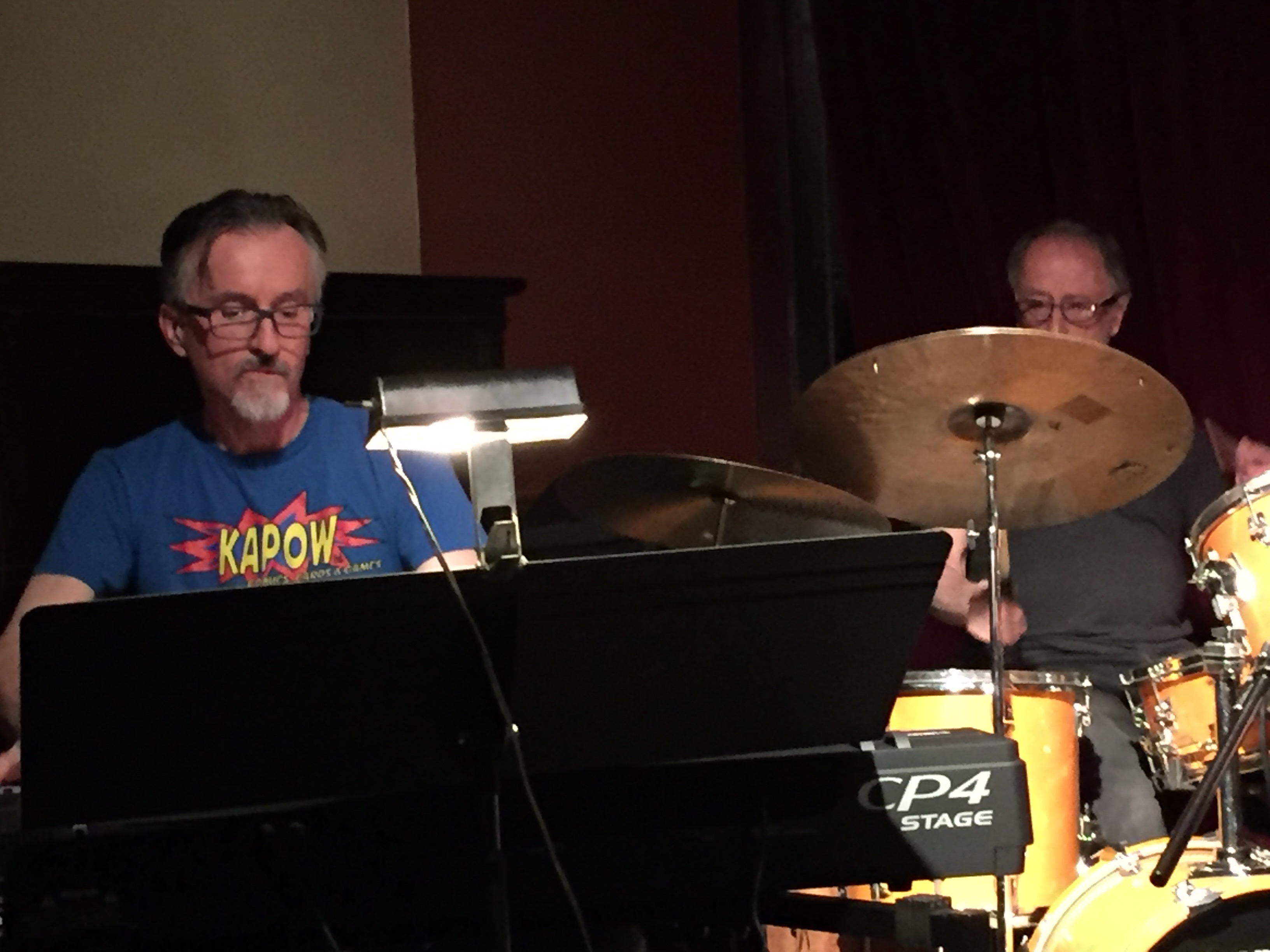 “Our object is to minimize the contrast between studio practice and public performance.” –Philip Farkas, hornist (The Musician’s Way, p. 149) http://musiciansway.com/blog/2010/09/performance-oriented-practice/ Enjoy David
0 Comments
Mozart taught his students to improvise I'm told. I think he would like this.
 A provocative assertion. Here are my assumptions behind this thought.
Simple stuff, written out its on about a Grade 3 piano level. The trick and art of course is to create this in real time which listening and reacting to the other musicians around you. That pulls it up to level 10 quickly. But, later when we play some of our old Classical piano favorites we find our fingers are slow and lacking their former finesse and grace. Classical piano kept our fingers limber and fit because of the composer's demands. In Jazz our hands follow our demands and elementary ideas. Not great for staying in shape. Solution? I keep my hands in shape by practicing Classical piano at the higher-grade levels daily. I practice my "Classical" piano technique: scales, chords, and arpeggios. I suppose one could skip the Classical piano repertoire and learn Jazz piano transcriptions in the same manner as you formally studied Classical. Either way the hands will stay in shape. Cheers, David Story Practice video of the week. Jazz metronome ideas. And the importance of recording your practice. Try it, it really works for all instrumentalists. |
You've got to learn your instrument. Then, you practice, practice, practice. And then, when you finally get up there on the bandstand, forget all that and just wail. AuthorI'm a professional pianist and music educator in West Toronto Ontario. I'm also a devoted percussionist and drum teacher. Categories
All
|
 RSS Feed
RSS Feed